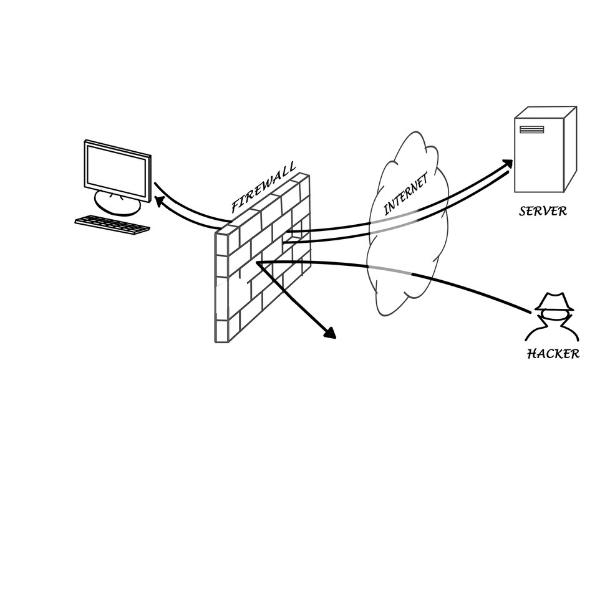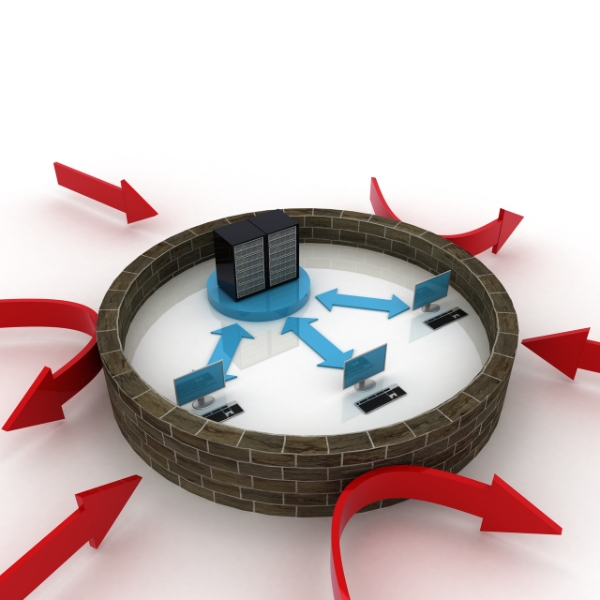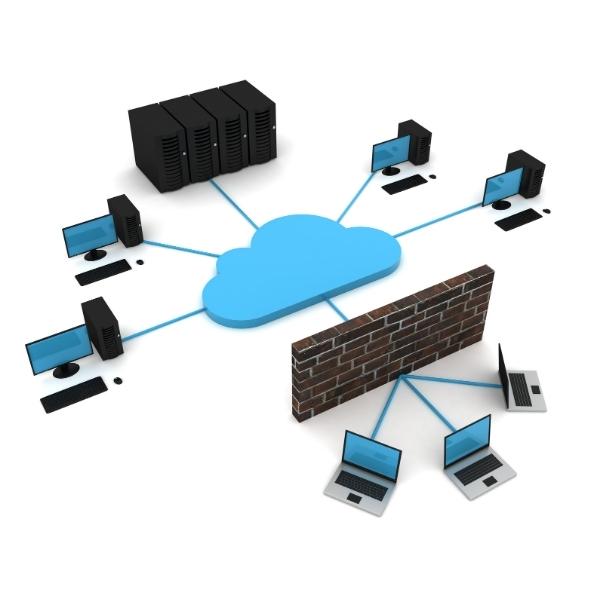
Introduction:
A firewall is a network security device that acts as a barrier between a private internal network and the public Internet. It monitors and filters incoming and outgoing network traffic based on pre-established security policies. The primary function of a firewall is to allow legitimate traffic to pass through while blocking unauthorized access and potential threats.
What do Firewalls Do?
Firewalls play a crucial role in protecting your network from malicious software and unauthorized connections. They examine the data being sent to your network, analyze it based on predefined conditions, and make decisions to allow or block the traffic. Firewalls monitor both outgoing and incoming network traffic to ensure the security of your system. This is especially important for businesses with remote working employees who need to securely connect to the company’s network from potentially unsecured locations.
Types of Firewalls
a. Softwae-based: Firewalls can be either hardware or software-based. Software firewalls are installed directly on computers and provide protection only for the specific machine they are installed on. Most operating systems have built-in software firewalls that offer basic protection against threats such as malware, ransomware, and viruses.

b. Hardware-based: On the other hand, hardware firewalls are separate devices or routers that act as a barrier between the internal network of a business and the Internet. They offer more robust protection and can secure multiple devices on a network without requiring individual software installations.
Benefits of Having a Firewall in Your Business
- Blocks Unauthorized Access: Firewalls act as a barrier against unauthorized access attempts to your network, preventing potential security breaches.
- Prevents Access to Problematic Content: Firewalls can filter and block access to specific websites or types of content that may be harmful or violate company policies.
- Protects Against Viruses and Malware: Firewalls help prevent the spread of viruses, malware, and other malicious software by blocking suspicious incoming traffic.
- Enhances Network Security: By monitoring and controlling network traffic, firewalls significantly enhance the overall security of your network infrastructure.
- Enforces Internet Usage Policies: Firewalls enable businesses to enforce policies related to internet usage, ensuring employees adhere to acceptable use guidelines and reducing security risks.
- Assists in Troubleshooting: Firewalls provide insights into network traffic, aiding in the identification and resolution of network issues.
- Supports Virtual Private Networks (VPNs): Firewalls can offer VPN functionality, enabling secure remote access to the company’s network from external locations.
Trusted vs. Untrusted Zones
Firewalls can be configured to have different policies based on the network they are connected to. This concept is known as zones of trust. For example, when connecting a computer to a new Wi-Fi network, you may be prompted to choose whether it should be treated as a public or private network.
The Firewall policies can be more permissive for trusted private networks, allowing access to shared resources, while being more restrictive for public networks, such as those found in cafes or airports.

Firewalls Do More Than Blocking Harmful Traffic
Firewalls play a vital role in securing businesses, going beyond mere traffic blocking. They offer a range of capabilities that enable organizations to gain deeper insights into network traffic, troubleshoot network issues, ensure regulatory compliance, and enforce internet usage policies.
Additionally, firewalls provide the valuable functionality of Virtual Private Networks (VPNs), enabling safe data transmission across shared or public networks while maintaining data privacy and security.

Firewalls vs. Antivirus – Understanding the Distinction:
Firewalls and antivirus software serve Different but Complementary roles in ensuring comprehensive cybersecurity. While both are essential components of a robust defense strategy, they operate at different levels of network protection.
A Firewall acts as a barrier between a private network and the external internet, monitoring and filtering incoming and outgoing network traffic based on predefined security policies. Its primary function is to prevent unauthorized access, control network traffic flow, and block potentially harmful connections. Firewalls are effective at blocking unauthorized access attempts and protecting against network-based threats, such as hacking attempts and distributed denial-of-service (DDoS) attacks.

On the other hand, Antivirus software focuses on scanning and detecting malicious software, commonly known as malware, that may have already entered a system. It primarily operates at the endpoint level, meaning it protects individual devices by scanning files and programs for known patterns or behaviors associated with malware. Antivirus software is designed to identify and remove viruses, worms, Trojans, ransomware, and other types of malicious software that can compromise the security and functionality of a device.
In summary, firewalls primarily safeguard the network by controlling traffic and preventing unauthorized access, while antivirus software works at the device level to detect and remove malware. Both are crucial for comprehensive protection, with Firewalls acting as the first line of defense against external threats, and Antivirus software providing a second layer of defense against malware that may have bypassed the firewall or entered the system through other means. Together, they form a powerful combination to ensure the security and integrity of your digital environment.
Conclusion :
Selecting the appropriate firewall solution depends on your specific requirements. Hardware firewalls are effective for protecting the network within the office premises. However, they don’t provide protection for employees working outside the protected network, such as those working from home or other locations. In these cases, it is recommended to use software firewalls installed on individual devices. Many businesses choose to utilize both hardware and software firewalls to ensure comprehensive coverage.
It’s important to note that firewalls require regular updates and proper configuration to effectively protect your business against potential threats. Managing firewalls can be challenging for companies with limited budgets and time. However, firewalls are essential for protecting your network against distributed denial-of-service (DDoS) attacks, malware, botnet attacks, network intrusion, and data leaks.
Save time and effort with our comprehensive firewall solutions tailored to your business. Our expert team will assess your needs, recommend the perfect firewall solution, and handle all the setup and configuration, while you focus on your business. Contact us today –
Get in Touch
Nurture IT
50, 9th A Main Rd, Indira Nagar 1st Stage, Stage 1, Indiranagar, Bengaluru,
Karnataka 560038
Phone +91 9886349622
[email protected]
